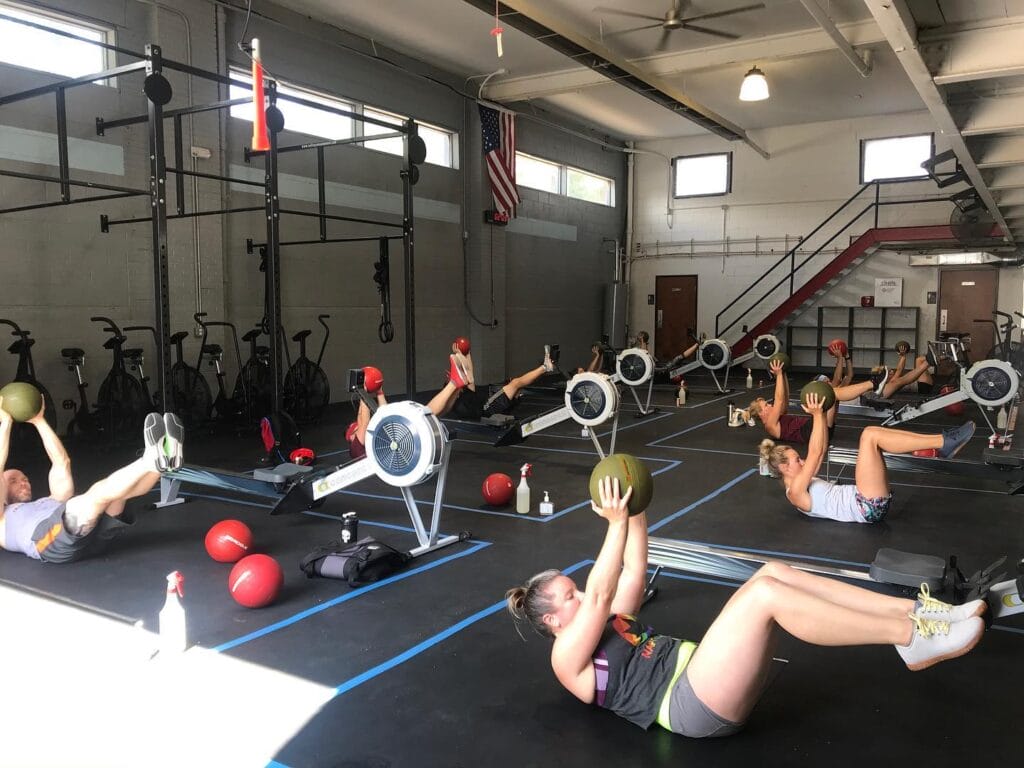Pro-level athletes are not more motivated than you are.
Olympic athletes don’t just “want it more.”
Elite athletes have the same struggles with accountability that we all do. The difference? They know how to get motivated (and what to do when they don’t feel motivated at all).
Ask anyone at the highest levels of fitness: Sometimes they don’t feel like working out. And those folks with ripped abs? They want a slice of cake.
So why do they work out anyway? Why do they stick to their meal plan when things get tough?
Here’s how to do it – you can use the SAME strategy they do.
- Share your goals with your coaches. You need someone (ideally a third party / NOT your significant other) to hold you accountable. You can “ghost” someone over text, but you can’t miss classes or appointments when you’re paying for them and you know someone is counting on you to be there.
- Get a really fast result. Our brains are wired to reward quick wins and novelty. If we don’t see results quickly, we lose motivation. It’s key for someone to say, “You did really well at X”. Staying close with your coaches and tracking your wins on SugarWOD are key to turning on the reward factor!
- Set up a short-term “challenge” for yourself, but have a plan for after the challenge ends. A six-week sprint is great for motivation, but most people drop off the edge when it ends. Often times, people who do short-term diets (like intermittent fasting or keto diets) usually gain back the weight they lost and far more. The unsustainable nature of the diet, plus the long-term damage to their metabolism, actually leaves them less healthy. Have the second step all lined up and ready to go before you take the first.
- It will eventually become habit. It won’t always be hard to go to the gym, or shop for groceries, or prep your meals. It WILL get easier, but only if you keep the habit going. Behaviors become habits, and habits become “just what we do.”
- Track everything. Track your workouts. Note your PR’s. Track your food intake. Note your wins. Track your sleep. Note how they all tie together. If you sleep less, you may want more caffeine. When you drink more caffeine, you may want more sugar. When you eat more sugar, you may lose motivation to work out. When you don’t work out, you’ll probably get more stressed. And when you get more stressed, you might sleep less. It all ties together – find patterns in your day to day, and take action if something seems off.
- Use tools to plan. Instead of just putting today’s food in MyFitnessPal before bed, enter all of your meals in advance. There’s an added sense of accountability and portion control when you have a plan to stick to.
- Check your progress. You’re not going to have a personal best on every workout – that doesn’t mean it wasn’t a success. People who show up every day, even if they put out 50% of their best effort, get better results than people who crush it once a week. The people who “sprint and crash” usually get amazing results, and then they gain weight again. Or they get strong, and then they get injured. The people who show up time and time again for their classes and appointments get sustainably strong, lean and happy.
The days when you feel the LEAST motivation are the days you’ll get the BEST results. Consistent, imperfect action always wins.
Inspiration provided by Chris Cooper at Catalystgym.com.

